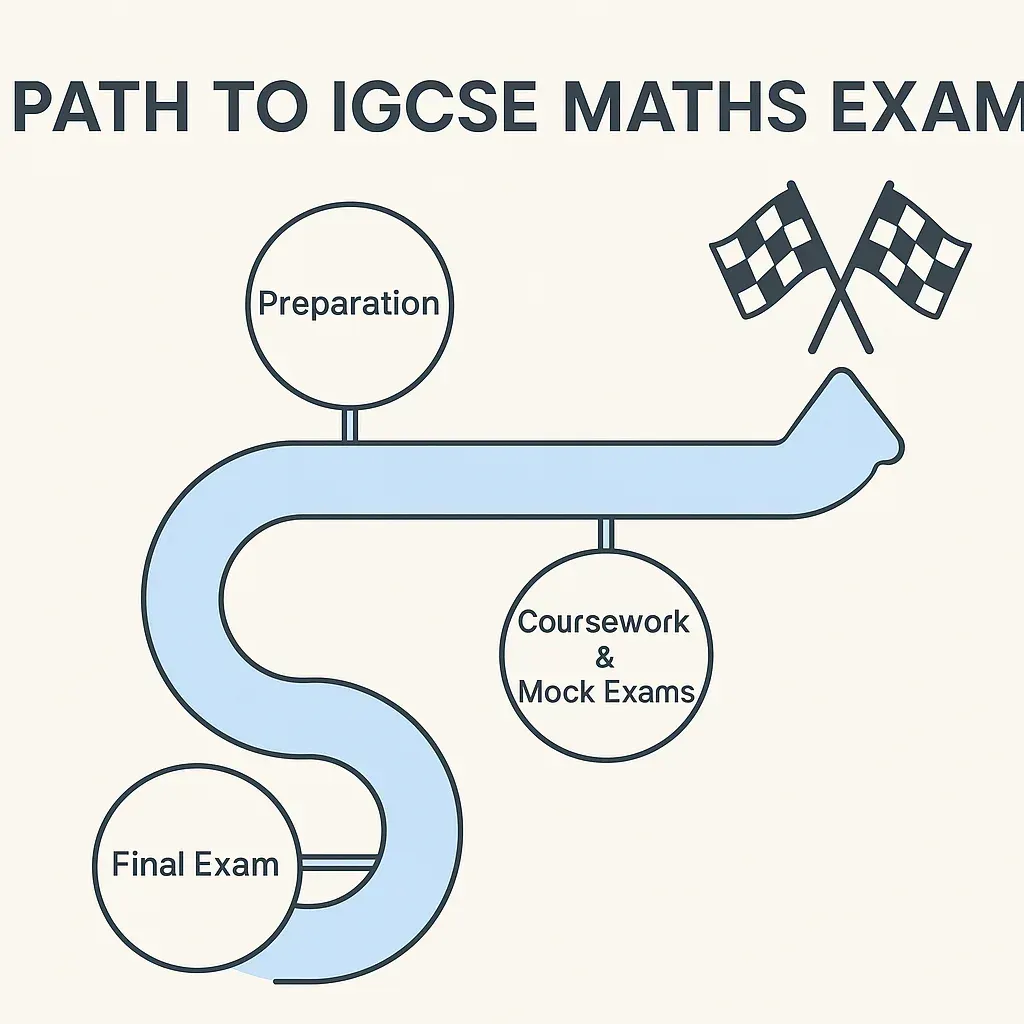
IGCSE Maths: Your Complete Guide
IGCSE Maths: Your Complete Guide to Succeeding in the Exam
If you’ve just started preparing for IGCSE Maths, you’re probably feeling a mix of excitement and nerves. Don’t worry—you’re not alone! This subject is one of the most popular and important Cambridge IGCSE exams worldwide, and it can open doors to A-Levels, university, and even your dream career.
In this blog, I’ll break everything down for you in plain English. Think of me as your study buddy—we’re going to cover what IGCSE Maths is all about, common challenges, study strategies, exam tips, and resources that actually work.
What Is IGCSE Maths?
The International General Certificate of Secondary Education (IGCSE) is a globally recognized qualification offered by Cambridge. The IGCSE Maths syllabus is designed for students aged 14–16 and builds a strong foundation in problem-solving, logical reasoning, and numerical fluency.
There are two levels of entry:
Core – focuses on the basics and allows you to achieve grades C–G.
Extended – goes deeper, covering more advanced topics and allows you to achieve grades A*–E.

Why Is IGCSE Maths Important?
You might be asking: “Why do I need to care so much about IGCSE Maths?” Here’s why:
It’s a gateway subject – Most higher education courses and jobs require at least a pass in Maths.
Life skills – Budgeting, analyzing data, and problem-solving are everyday skills rooted in Maths.
Career opportunities – Fields like engineering, computer science, business, and finance value strong mathematical ability.
Confidence booster – Getting good at IGCSE Maths builds your confidence for other subjects and future exams.
Key Topics in IGCSE Maths
The syllabus covers a wide range of topics. Here’s a quick breakdown:
Common Challenges Students Face
Even though IGCSE Maths is very doable, many students struggle with:
Time management – Papers are timed, and students often run out of time.
Word problems – Understanding what the question is really asking can be tricky.
Careless mistakes – Missing a minus sign or mis-copying numbers.
Algebra & Trigonometry – These two areas are the most feared but also the most rewarding once mastered.
Pro tip: Practice past papers to train both speed and accuracy.

How to Study for IGCSE Maths (Step by Step)
Here’s a simple but effective study roadmap:

1. Know Your Syllabus
Download the latest Cambridge IGCSE Maths syllabus and keep it handy. Highlight the topics you find hardest.
2. Use Math Simulation & Interactive Tools
Simulations help make abstract concepts concrete. For example, tools like PhET Interactive Simulations are free and let you visually explore functions, probability, algebraic models, etc.
Also check out our own Math simulation blog on HomeTuitionNearMe for simulation-based math resources that align with IGCSE Maths topics.
3. Watch and Learn with Video Content
Visual learning helps. Your YouTube channel, Math by HTNM Home Tuition (https://www.youtube.com/@MathbyHTNMHomeTuition), is a great place to revisit tricky topics, worked examples, and exam strategies. Videos help when you're stuck or when the textbooks seem too dry.
4. Practice Past Papers
Websites like Save My Exams and Physics & Maths Tutor provide tons of free past papers and mark schemes.
5. Use Active Recall & Spaced Repetition
Don’t just read; write. Test yourself. Review topics you’ve already studied after a gap. It helps with long-term retention.
6. Get Support When Needed
Sometimes an explanation from a human makes all the difference. If you need one-to-one guidance, you can always get a 1-on-1 home tutor.
Exam Tips for IGCSE Maths
When exam day arrives, these strategies can help:
Show all working – Even if you don’t know the final answer, method marks can save you.
Check units – Especially in geometry and measurement questions.
Answer the easy ones first – Build confidence and secure quick marks.
Use the formula booklet wisely – Don’t waste time memorizing what’s provided—focus on applying.
Double check your answers if time allows, especially those tricky word problems.

Useful Resources for IGCSE Maths
Here are some trusted resources to explore:
Cambridge Assessment Resources (official syllabus and past papers)
BBC Bitesize (easy-to-understand explanations)
Save My Exams – IGCSE Maths (summaries and practice papers)
Math simulation tools like those on PhET, Mathigon etc., help for visual and interactive learning.
Balancing Core vs Extended
If you’re unsure whether to take Core or Extended Maths, here’s some advice:
Choose Core if: You want a solid pass and don’t need super high grades in Maths.
Choose Extended if: You’re aiming for science/engineering or studying abroad and want stronger credentials.
Talk to your teacher about where you are now and where you want to go. Sometimes pushing for Extended is doable with consistent work and use of resources.
Quick Motivation Boost 💡
Remember: IGCSE Maths is not about being “naturally” good at maths. It’s about practice, consistency, and mindset. Every past paper you attempt, every simulation you try, every video you watch—it all adds up.
Key Takeaways
IGCSE Maths is crucial for academic progress; strong foundations in algebra, geometry, and statistics matter.
Tools like your Math simulation and Math by HTNM Home Tuition YouTube channel are great supplements to notes.
Practice makes a huge difference—do past papers, use active recall, and test yourself under timed conditions.
Seek help early. It’s much easier to fix misunderstandings now than later.
